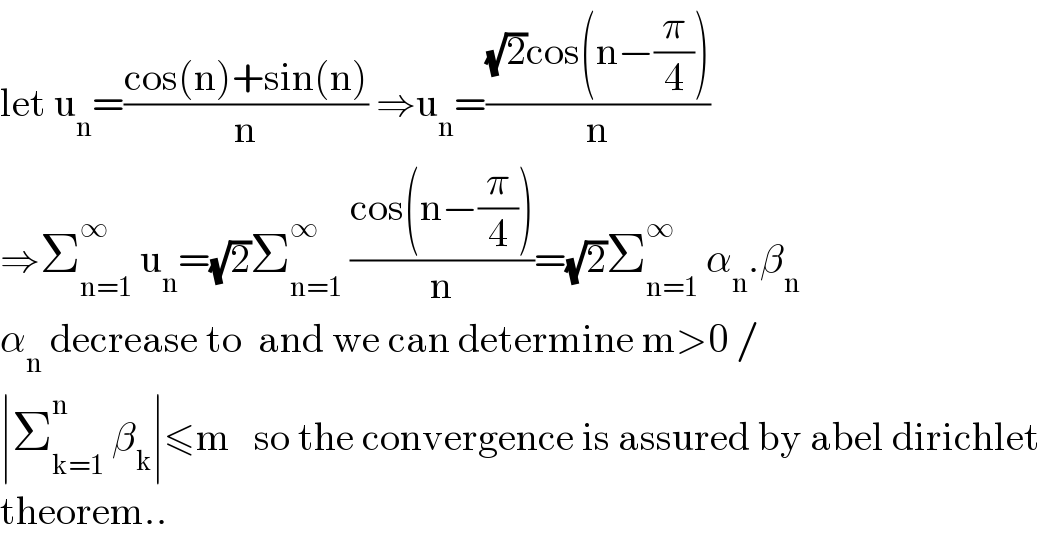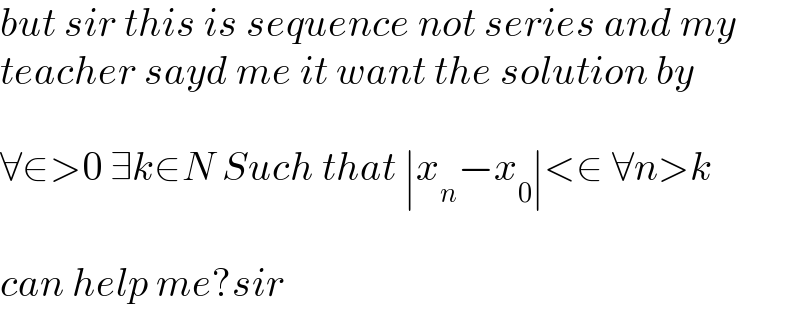
Question and Answers Forum
Question Number 129997 by mohammad17 last updated on 21/Jan/21
![prove that [(cos(n)+sin(n))/n] converge sequence](Q129997.png)
Answered by Dwaipayan Shikari last updated on 21/Jan/21

Commented by mohammad17 last updated on 21/Jan/21

Answered by mathmax by abdo last updated on 21/Jan/21

Commented by mathmax by abdo last updated on 21/Jan/21

Commented by mohammad17 last updated on 21/Jan/21

Commented by mathmax by abdo last updated on 22/Jan/21

